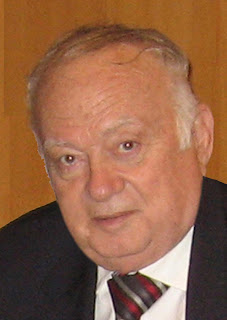Dr. Manny Sultan and Yasuko Emmei-Sultan | The Japan Times Online


Dr. Manny Sultan and Yasuko Emmei-Sultan The Japan Times Online
By VIVIENNE KENRICK
Three people have had major influences on the life, character and career of Dr. Manny Sultan, Cairo-born architect, interior architect, and space planner.
By VIVIENNE KENRICK
Three people have had major influences on the life, character and career of Dr. Manny Sultan, Cairo-born architect, interior architect, and space planner.
The first was his mother, widowed when Manny was age 11, with 10 children to bring up. His mother impressed on all her children that nothing was impossible, and insisted that all of them complete university education before they married.
The second pillar for Manny was Hassan Fathy, recipient of the first gold medal awarded by the International Federation of Architects. Manny was 17, a university student, when he first met Fathy.
"He taught me always to seek new summit horizons in architecture," Manny said. "He taught me to aim for excellence not only in architecture but also in life."
The third abiding influence is his wife, Yasuko Emmei-Sultan. "She is the one behind the scenes, reviewing, analyzing, brain-storming and advising. She does everything in silence and perfection. Without her I would never have attained my success," Manny said.
Manny took his bachelor's degree in architecture from Ain Shams University in Cairo. In company with his mentor Hasssan Fathy he attended international conferences, and became a university teaching assistant before embarking for a few years on his "roaming life."
He lived and worked in Denmark and England, and traveled in Europe and America. He owes his initial interest in Japan to one of his brothers who had attended graduate school here.
Manny first came to Japan in 1974. He learned the language quickly, and as a research student entered the University of Tokyo. He undertook the master's course in the graduate school, advanced to obtain his doctorate, and became a research fellow.
Manny met Yasuko while they were both students in Tokyo. She came from an enlightened family that valued education, knowledge, and the role of women in society. Her parents encouraged her in ambition.
At 15, she made her first overseas trip when she was chosen as a group member of the Japanese Girl Scouts. She said, "We went to an international camp in Denmark and traveled for two months in Europe. That experience made me decide to study foreign languages."
Yasuko taught herself English largely through the lyrics of popular songs. By the time she met Manny, she was proficient in both English and French. She holds a degree in French literature from Sophia University.
Manny established his firm, AAS Associates International, as an architectural, interior architectural, and space planning enterprise. From the beginning, Yasuko was named director in charge of management. As president, Manny said, "The firm's main objective was to develop professionally as architects who could provide working and living environments to help people be more imaginative, creative and productive."
Project followed project. Into each design Manny poured his originality, his knowledge of the global scene as well as the local, his understanding of color and the blending of indoors and outdoors. He employed symbolism to enhance the quality of each space and created multipurpose areas for flexibility in use.
Over the years, Manny's credits both inside and outside Japan include office buildings, hotels and resorts, clubs, factories and residences, and concept-making of high-rise residential towers. Recently, he is undertaking designs for restaurants an d movie studios. He received the Tokyo Architectural Design Excellence Award for the Rolex building in Tokyo. The magazine "Process Architecture" dedicated a special issue to his work.
Nowadays, Manny and Yasuko live in both Tokyo and Honolulu. They work as efficiently and prolifically as they ever have, and with the benefits of modern technology in more relaxed surroundings, have more time for their private living. Manny maintains his affiliations with professional, business-related and social and sports organizations. Yasuko remains a devotee of the kabuki theater, and enjoys her more frequent opportunities to cook at home.
They live by the motto which they recommend to other mid-life, hard-working people. It works for them. It is "quit the pace, not the race."
http://www.aas-associates.com/

Comments
Post a Comment